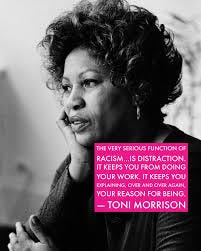
DEI Ruined My Career, Pt. 2
When people ask me where I’m from, my immediate and proud response is Los Angeles. While that is only a partial answer, I grew up all around Southern California. However, LA is identifiable without much explanation as well as true to the nature I was raised in, and the culture where I grew up. *Insert everything you know about West Coast Hip Hop and the like.

I always joke that I lived the “traditional Black American sob story,” I call it TBASS. We were poor and underhoused at times, we had very few resources, and were a single-parent household.
When I was a kid, my older brother, older sister and I were left outside until the lights came on, drinking out of street water hoses, and were mostly responsible for running the majority of the functions in the house, given our mother worked upwards of 3 jobs at a time to support us.
With the example of my mom, my brother who was the eldest, taught us to be resilient and resourceful. We would watch the Food Channel, now known as Food Network, jotting down recipes we wanted to explore when we took our leap from the strict menu that food stamps and processed food had to offer. We would scour garage sales and Goodwill for broken and outdated technology to take home and refurbish, supplying us with Nintendo games and computer consoles. The hope was that they’d “just work” but we typically were left to code and program them to a functional state ourselves.
This is where I gained my foundation in programming. It would be a number of years later that I would fall into engineering.
As I have grown in this industry, there are a number of stories that I have heard that have similar notes to mine. As I have built up my career in tech, I think back to my childhood with awe, and think, “what is my opportunity now?”
This has been a reflection point for so much of my career. Early on when I started my career in New York City, I would seek out spaces with faces and stories like mine. There were few to be found, however the ones I did find, I was committed. I would share and grow alongside others, knowing we were battling uphill for representation in our various areas of expertise. After a while, intrigue grew and I started sharing my story. How did this Black woman end up in engineering?
It was only a matter of time that I began speaking and presenting workshops about engineering and tech. With each opportunity, a growing awareness about the disparities in representation were beginning to stir. Although a margin of the audience were members of the communities that were historically excluded, many were folks that had various interests of wonder, and they wanted to work to increase awareness of the lopsided representation they were seeing in the industry.
I had a good handle on this having prospered in tech as an underrepresented person. I had created internal programming and developer guilds to help fill in the narrative. I launched focus groups, started mentorships programs and became a coach. However, I “fucked around and found out”. This is where I was bamboozled.
The number of requests for me to work within companies and organizations to talk about diversity, began to grow. Although this created a phenomenal community and network for me, I have to admit, my focus began to shift slightly away from engineering and growth for people with stories like myself, and onto coddling others as they loosely adopted minimal education about Diversity and Inclusion.
It would begin like this, with the “funding” of space and time, but never matched with money or commitment.
“Build out this programming so that we can show we care about those who have been historically left behind from broken systems of bias and “meritocracy.””
The approach was simple:
- Create awareness
- Educate on the disparities and their historical context
- Create spaces of inclusion
- Build supporting programming, etc.
This was the work. It was challenging, enjoyable and built phenomenal opportunities for those who were committed to the outcomes. HOWEVER, this was not well prepared for in most cases.
There was a large gap in the preparation within organizations for such strategic planning.
I remember working with a company that was “interested” in building out Employee Resource Groups. Instead of focusing on the benefit to the historically excluded employees it was supposed to support, my time was spent coaching leaders and individuals out of their inherent biases so that they could be persuaded to hire, retain and grow diverse talent. Because (of course), these were the metrics that mattered. How many? How long? And, to what level of satisfaction?
The focus had shifted.
It was no longer strategic and operational. It was no longer about the people who were left on the edges of opportunity. Instead, it was emotional, lacked empathy, and induced blame.
I was often left exhausted and frustrated. Attempting to showcase the benefits of having a diverse workforce while often being met with highly charged individuals who felt that energy spent on this programming was taking time, resources and opportunities away from others who were deemed “more deserving.”
Not much was said face to face, but so much was communicated when simple requests for support, funding, accountability and participation were denied and “numbers” that represented the success of such programming stood still. These slights were further reinforced by people and decisions outside of public view. As a result, individuals were inadvertently encouraged to withdraw their participation after having programming downsized and brushed aside by leaders.
It was a mess. And more importantly, it slowly but surely sidetracked my career.
In my engineering days I was building things that mattered, measured in clear business bottom lines. However, the more I worked on diversity initiatives, I was building broken promises and platforms that held little support that tied back to the systems building the organization. The promise of DEI programming was to build networks and communities that were created to retain, grow, and foster diverse communities. The reality was that these programs were required to support themselves.
Organizations are fictional functional entities built to support business outcomes. Diversity as well as other people functions, aside from talent acquisition, are often positioned against business success. They would always be at odds and encounter higher levels of scrutiny. This is because organizations, as an entity, are not privy to empathy, have no conscience, show no emotion, and feel no remorse. So for the people who rely on these functions, this furthered the discrimination, ostracization and, quite honestly, hate received within the company.
In return I hated what I did. I loved working alongside the people whose stories resonated with mine. I loved seeing the very far and few between positive outcomes, but it was at such a huge cost. Alongside the growing racial and DEI tension that was growing in the country, it became evident that what was once programming and strategy had been mollywhopped to be the dog whistle to shortsided arguments about underqualified hiring, problematic employees who were diverse, and failed programming.
My career was ruined.

In the words of Toni Morrison:
“The function, the very serious function of racism is distraction. It keeps you from doing your work. It keeps you explaining, over and over again, your reason for being. Somebody says you have no language and you spend twenty years proving that you do. Somebody says your head isn’t shaped properly so you have scientists working on the fact that it is. Somebody says you have no art, so you dredge that up. Somebody says you have no kingdoms, so you dredge that up. None of this is necessary. There will always be one more thing.”
I had been distracted.
I had been distracted from my community. I had been distracted from my career in engineering. All for the astronomical cost of entertaining the idea that organizations have what it takes to protect, grow, nurture, and build inclusive communities.
While I have had many successes over my career and I am enormously proud of what I have accomplished, I cannot look at what DEI has become and feel any way like there was success looking out for me, or anyone who is historically excluded for that matter.
Like my previous post stated, so much of DEI has been hijacked to be a breeding ground for those who are immovable in their own bias and discrimination. They continue to front as if we are the ones who failed, where in fact, DEI failed us.
